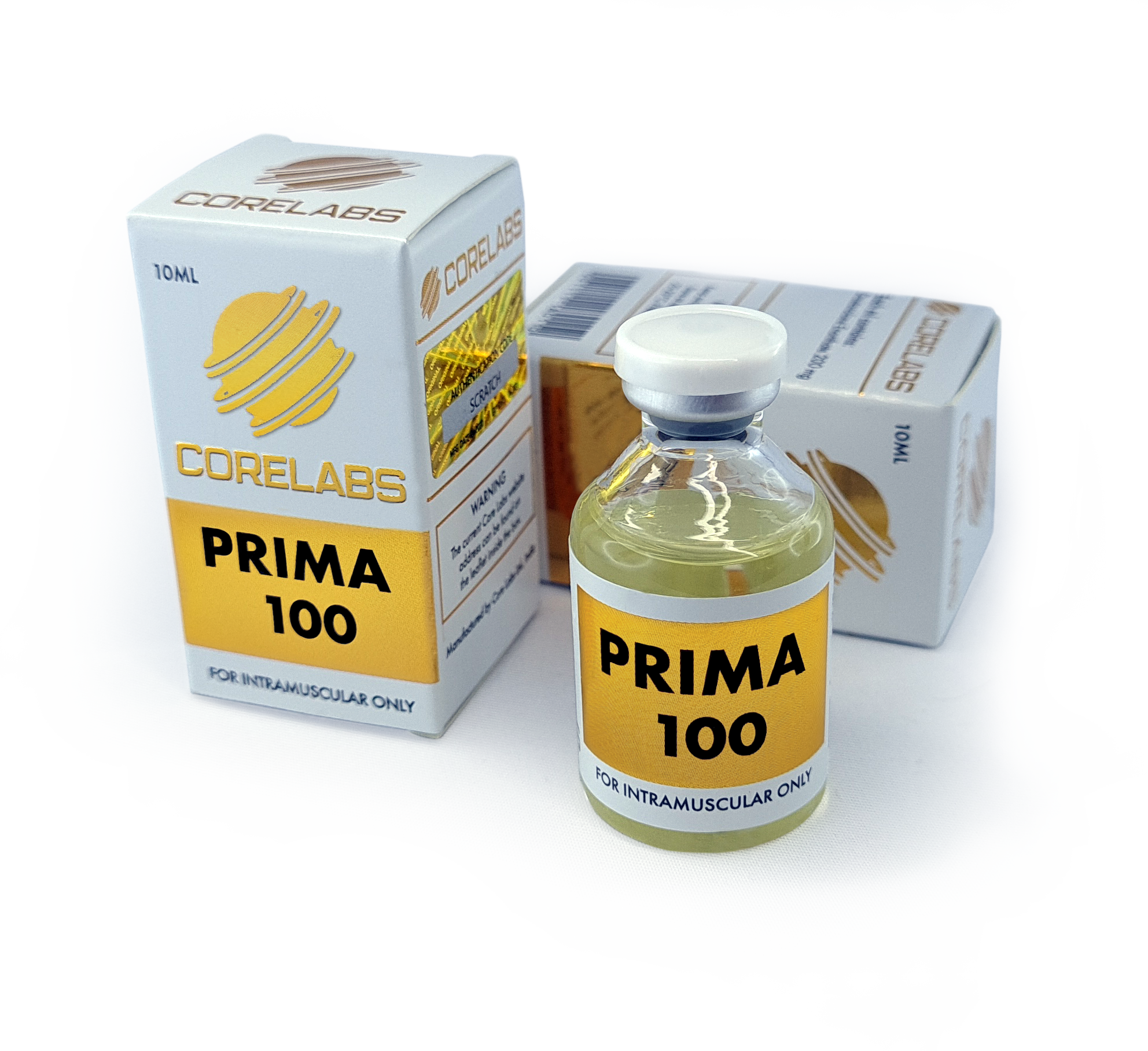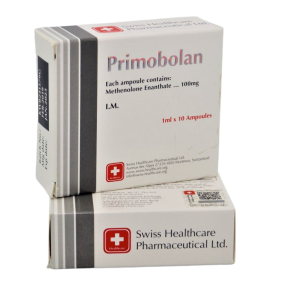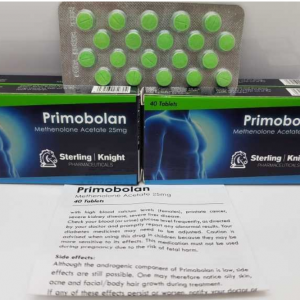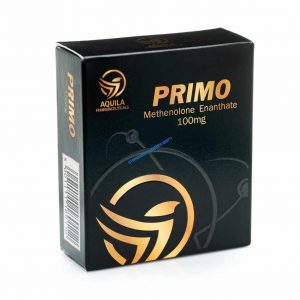Description
Methenolone Enanthate
Strength: 100 mg/ml
Molecular Formula: C27H42O3
Molecular Weight: 414.62058 g/mol
Active Ingredient: Methenolone enanthate
CAS number: 303-42-4 Dosage Form: Injectable, oil base sterile solution
Route: Injection
Market Status: Prescription
Company: Hilma Biocare
DESCRIPTION
Methenolone Enanthate 100 is a dihydrotestosterone derived anabolic steroid. Methenolone
Enanthate 100 contains methenolone enanthate, a long- acting methenolone ester
producing a rapid onset of serum methenolone with a continued duration of action of 5 to 7
days after IM injection. Methenolone Enanthate 100 is moderately anabolic with limited
androgenic properties. Methenolone cannot aromatize to estrogen, reducing estrogenic side
effects, and has a favorable safety profile among anabolic agents.
CLINICAL PHARMACOLOGY
Anabolic steroids are synthetic derivatives of testosterone. Certain clinical effects and
adverse reactions demonstrate the androgenic properties of these drugs. Complete
dissociation of anabolic and androgenic effects has not been achieved. The actions of
anabolic steroids are thus similar to those of male sex hormones. Anabolic steroids suppress
the gonadotropic functions of the pituitary and may exert a direct effect upon the testes.
During exogenous administration of anabolic androgens, endogenous testosterone release
is inhibited through inhibition of pituitary luteinizing hormone (LH). At large doses,
spermatogenesis may be suppressed through feedback inhibition of pituitary folliclestimulating hormone (FSH). Methenolone is a dihydrotestosterone derivative which cannot
be aromatized to estrogen and which acts upon the androgen receptor stimulating anabolism
through increased nitrogen retention and protein synthesis in muscle tissue. Methenolone
enanthate in a single dose pharmacokinetic study has demonstrated a mean elimination
half-life of 6 days.
INDICATIONS
As an alternate or adjunctive therapy in patients for the promotion of weight gain following
weight loss and/or muscular atrophy associated with extensive surgery, chronic infections,
long term hospitalization, or severe trauma. To compensate for protein catabolism
consequent to corticosteroid therapy.
DOSAGE AND ADMINISTRATION
Adult male: 100 – 200 mg injected IM every 3 – 5 days for a duration of 8 to 12 weeks.
ADVERSE REACTIONS
Male: Gynecomastia, increased frequency of erections, azoospermia, priapism,
oligospermia, prostatic hypertrophy.increased risk of prostate carcinoma.
Skin and Appendages: Hirsutism, pattern baldness and acne, gynecomastia,
Fluid/Electrolyte Disturbances: Retention of sodium, chloride, water, potassium, calcium, and
inorganic phosphates.
Gastrointestinal: Nausea, cholestatic jaundice, alterations in liver function tests; rarely,
hepatocellular neoplasms, peliosis hepatis, hepatic adenomas, and cholestatic hepatitis.
Hematologic: Suppression of clotting factors II, V, VII, & X; bleeding in patients on anticoagulant therapy.
Nervous System: Increased or decreased libido, headache, anxiety, depression, and
generalized paresthesia.
Metabolic: Reduced glucose tolerance and inhibition of gonadotropin secretion.
Other: Serum lipid changes, hypercalcaemia, hypertension, oedema, and potentiation of
sleep apnea.
CONTRAINDICATIONS
Patients with diagnosed or suspected carcinoma of the prostate, breast, or testis. Patients
with diagnosed or suspected female breast carcinoma with hypercalcemia as androgenic
agents may increase osteolytic bone resorption. Women who are pregnant or may become
pregnant because of possible masculinization of the fetus. Patients with nephrosis or the
nephrotic phase of nephritis. Patients with hypercalcemia. Hypersensitivity to this product or
any of its ingredients. Patients with pre-existing cardiac, renal, and/or hepatic disease.
Discontinue treatment upon signs of jaundicing or hepatotoxicity.
PRECAUTIONS
Because androgens may alter serum cholesterol concentration, caution should be used
when administering these drugs to patients with a history of myocardial infarction or coronary
artery disease. Patients on oral anticoagulant therapy require close monitoring especially
when androgens are started or stopped.
Diabetics: androgens may alter the metabolism of oral hypoglycemic agents or may change
insulin sensitivity in patients with diabetes mellitus which may require adjustment of dosage
of insulin and other hypoglycemic drugs.




![Methenolon Enanthate Somatrop-Lab 10ml [100mg/ml]](https://primobolan-for-sale.com/wp-content/uploads/2023/04/Methenolon-Enanthate-Somatrop-Lab-10ml-300x300.png)

Reviews
There are no reviews yet.